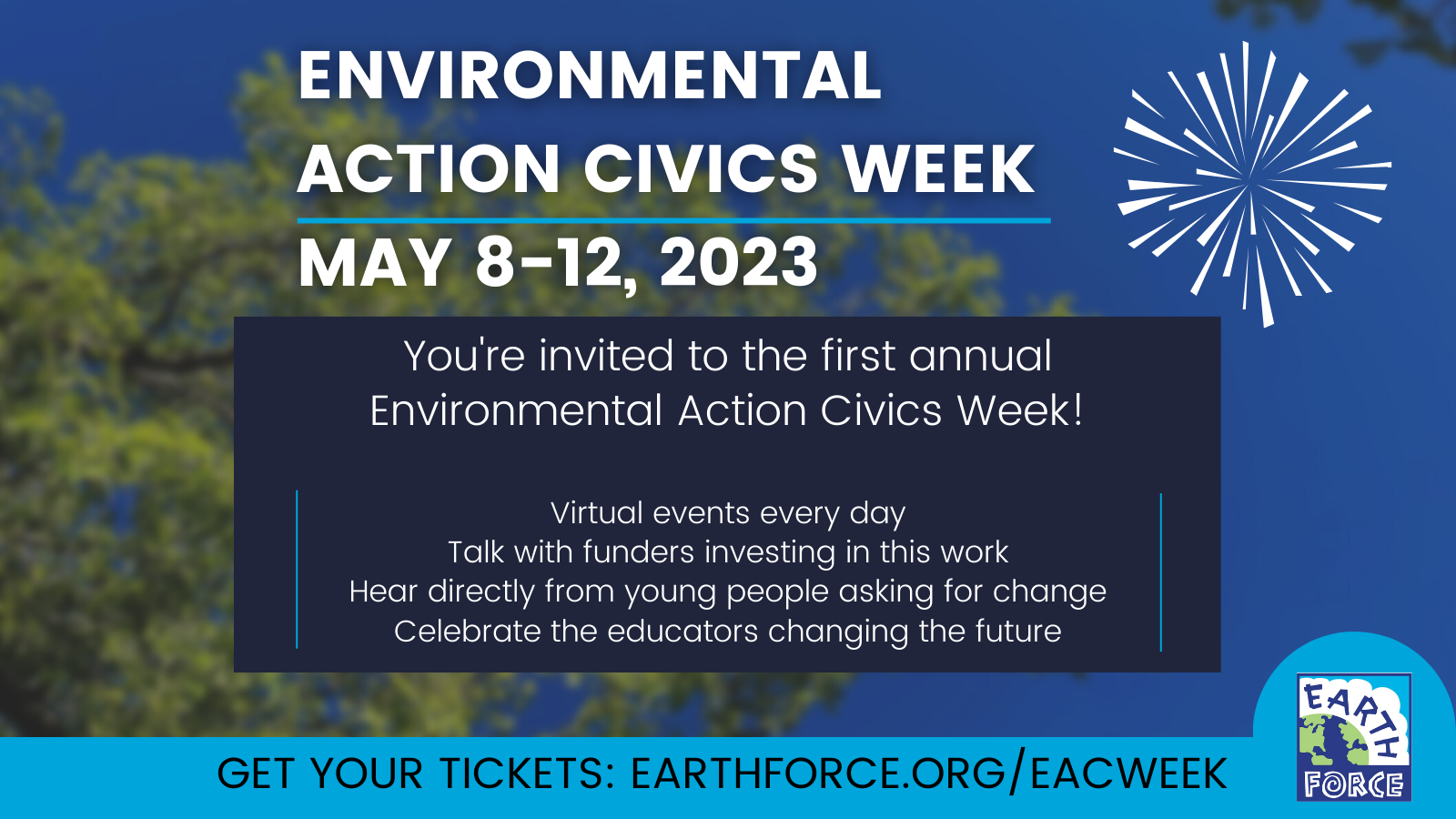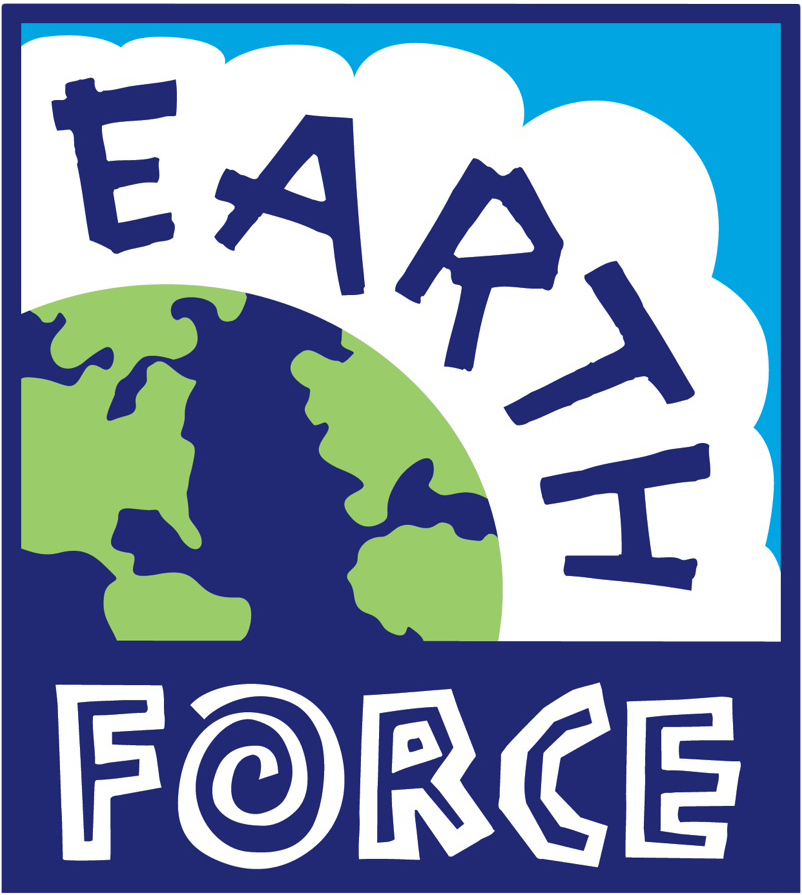
Environmental Action Civics Week – May 8-12, 2023
Environmental education emerged as a formal concept in the late 1960s and early 1970s, as a response to growing concerns about environmental degradation and the need to educate people about environmental issues. Over the ensuing 50 years environmental education has become a critical tool for addressing the environmental challenges such as climate change, biodiversity loss, and pollution. At the same time environmental education has evolved from a narrow focus on conservation and preservation to a broader interdisciplinary approach that incorporates social, economic, and political dimensions of sustainability. Today that evolution continues as educators around the country prepare young people to meet the needs of a society struggling to address climate change and the breakdown of democratic norms.
This week Earth Force is proud to present Environmental Action Civics Week, a celebration of that evolution through panel discussions, student awards and by highlighting the next chapter in environmental education’s history.
As the world faces the consequences of climate change, pollution, and biodiversity loss, environmental educators have recognized that the study of our interaction with nature is an essential element of a well rounded education. At the same time, environmental educators have recognized that the conservation education of the 1970s is maladapted to the needs of society in the 2020s. Educators across the country are taking on this responsibility to adapt environmental education to our current reality.
At Earth Force we are proud to be a part of this movement continuing the evolution of environmental education. For our part we are pioneering the development of Environmental Action Civics. Environmental action civics is an evolution of environmental education that goes beyond educating individuals about environmental issues and emphasizes the importance of empowering individuals with the knowledge and skills needed to take collective action for environmental justice and sustainability. Environmental Action Civics is helping educators address environmental justice, contextualize environmental decisions within policy frameworks, and provides students with a pathway from knowledge to meaningful collective action.
All of us in environmental education recognize that environmental issues disproportionately affect marginalized communities, such as low-income and minority populations. These communities are often at the frontline of pollution and the impacts of climate change. Educators practicing Environmental Action Civics are able to center student learning on the “lived experiences” of local communities. This process of centering the needs of impacted communities is an essential first step in addressing environmental injustice.
Knowing the issues that are impacting your community is increasingly valuable as you better understand the policy framework set in place to address environmental issues. Environmental Action Civics guides students as they research the policy landscape in their community. Through this process they learn which laws and regulations determine how the community responds, engage with stakeholders on the many sides of any issue and learn how to construct their own policy and practice solutions to the problems they identify.
Finally, Environmental Action Civics brings together the knowledge and skills young people develop and puts them in the position to do something with that knowledge. As young people put their knowledge to use by advocating for changes to their community they are developing the civic habits that will stay with them for a lifetime. This collective action will help create a culture of sustainability that is essential to addressing environmental issues now and far into the future. It is when young people are encouraged to participate in environmental activism, conservation projects, or community-based efforts that we will begin to alleviate the eco-anxiety that is impacting so many young people.
Environmental education has always been evolving as our communities have adapted to meet the challenges of the day. Today environmental education is becoming more inclusive, equitable, solutions-oriented, action-oriented, integrated, and adaptable. By doing so, environmental education empowers students to become environmental advocates and engaged citizens, and inspire real change to create a more sustainable future for all. This week we are (May 8-12, 2023) celebrating Environmental Action Civics Week to highlight young people who are making a difference, adults who are supporting young people on the civic journeys and the communities that are following the lead of these passionate, driven young people.
Written by - Hayley Valley
Hayley Valley, Earth Force's Communications Manager, joined Earth Force in 2010 and has since held too many roles to count - all drawing on her experience in communicating Earth Force's commitment to environmental action civics. When she’s not knee-deep in Google Docs, you’ll find her chasing her two boys around.

